

Once you have honed your ideas about the kinds of jobs or career you want to pursue, boost your potential to land those opportunities by doing some further preparation.
By beginning this research nine to 12 months before exiting the military, you can accomplish more than identifying some companies to target in your job search. You can develop a deeper understanding of the types of job opportunities that exist in your chosen career path and the skills that employers are seeking in applicants. With that knowledge and nearly a year of military service remaining, you can augment your skills and hone your resume to improve your chances to land the job you really want.
The Internet, of course, provides tons of information about employers – including information on company websites, LinkedIn pages, Twitter accounts, YouTube channels and other social media. Check out articles about those employers in industry publications or commentary about them on career sites, such as monster.com.
Your research into career options, job openings and potential employers may reveal some areas where you could benefit from some additional training, certifications or other job skills. By starting to plan your civilian career nine to 12 months before leaving military service, you can lay plans to enhance those skills (possibly even before you transition out) and boost your ability to land the civilian job you desire. Some steps that can assist this process include:
One of the most important business and professional competencies a job seeker can develop is the art of networking. It helps not only in the initial job search, but throughout your entire career.
Networking involves mixing with other professionals in your industry and in other sectors of professional careers, in settings that can be casual or more formal, planned or unplanned and often involving meeting new people with whom there has been no previous relationship. Networking provides resources and expertise for professionals to share information about various business events and news, updates on various types of industry or area developments which could impact jobs and other interesting facts which could affect personal performances or a business’ performance. Contacts may also make suggestions when they have experience in an area being discussed or could offer other resources.
Networking is about building relationships that are mutually beneficial. Networking contacts begin a relationship by demonstrating they can be trusted by showing respect for the other professional. As the relationship grows, each person comes to understand the other as a professional which would make a networking contact likely to recommend or refer a job seeker.

Anyone seeking a new position, perhaps uneasy with networking, may be unaware of the vast array of resources available to support a job search. Networks are actually quite large, with numerous sources to be considered.
Begin by making a list of possible contacts for your job search.
When making an introduction in the professional setting, a common question would be to ask about your interests. Recent graduates may be asked if they have made a decision about their new career search and if the candidate has identified where their job focus will be directed.

Answering this question effectively will help anyone in a job search. Having a vague response and not identifying a focus area will not provide your network contact with enough information to assist you with your search. Perhaps use a brief example or story to help illustrate your point. Most people enjoy stories, which are easier to remember, so creating an answer that includes a short example of how a problem was solved or how a great idea was developed, will be memorable and help create a sense of why you should be considered for a job.
Contacts Count (www.contactscount.com), a nationwide firm specializing in business networking, has a simple formula that can be used to develop an answer. It involves two parts:
Example:
A job seeker wants to get an information technology job such as a computer systems administrator. The candidate excels in determining space requirements and what upgrades a company might need and has just completed such a project as a volunteer at a local non-profit organization.
When the candidate puts the two together, they have a clear, concise and compelling way to answer the question “What are your job interests?”:
“I have been working as a volunteer at the local non-profit to identify their space requirements for the addition of a new contact management system and website. I was able to determine the appropriate upgrades and recommended new software. Over the past month, I have insured the existing hardware can support the newly installed software. I would like to find a permanent position to support and maintain the company’s computer system.”
This answer helps networking contacts visualize the type of job the candidate desires. Individuals without current employment and/or new graduates can use volunteer experiences, sports or club teams examples and leadership in extracurricular activities to demonstrate their interests. Hearing this information, networking contacts may be able to think of companies that need that type of skill. Specific and vivid answers will be most helpful.
Networking cards are similar to business cards, with contact information and a brief description of the candidate’s interests. The goal is to make it easy for contacts, with whom the candidate has discussed their job interests, to get back in touch, especially if another job has come to their attention.
There are four essential things to include on the cards:
Including an address is optional but could be helpful if information needs to be mailed.
Sample Card:
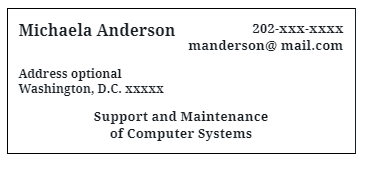
Carrying these cards at all times is beneficial in the job search because networking opportunities can happen everywhere. Cards can be designed using a template and printed on business card stock, which is easy to locate at such places as Staples or Office Depot or online sites such as www.vistaprint.com, provide free cards (there is a shipping and processing charge).
There is expected conduct and etiquette during networking or other professional events that will present you as professional, offering contacts and referral sources assurance in recommending you for a new position.
Keep the following tips in mind:
Being uncomfortable with networking should not prevent a candidate from being effective. There are suggestions to help job candidates feel at ease, particularly if the candidate is shy or reserved and uncomfortable opening the conversation.
Being introverted or feeling uncomfortable at networking events is not uncommon, but it is still possible to be successful at networking events. People who are more reserved, usually listen well and will be able to gather valuable information. Asking good questions is the key to getting good information. By having a few questions prepared, as well as responses to possible questions to be asked at the event, the candidate can be successful and feel at ease.
Planning ahead of the event can help ease anxiety and below are other suggestions to make the experience more comfortable:
Remember, most people welcome conversation and may be introverted as well. By deciding to enjoy the evening and find ways to laugh, the event can be a success.
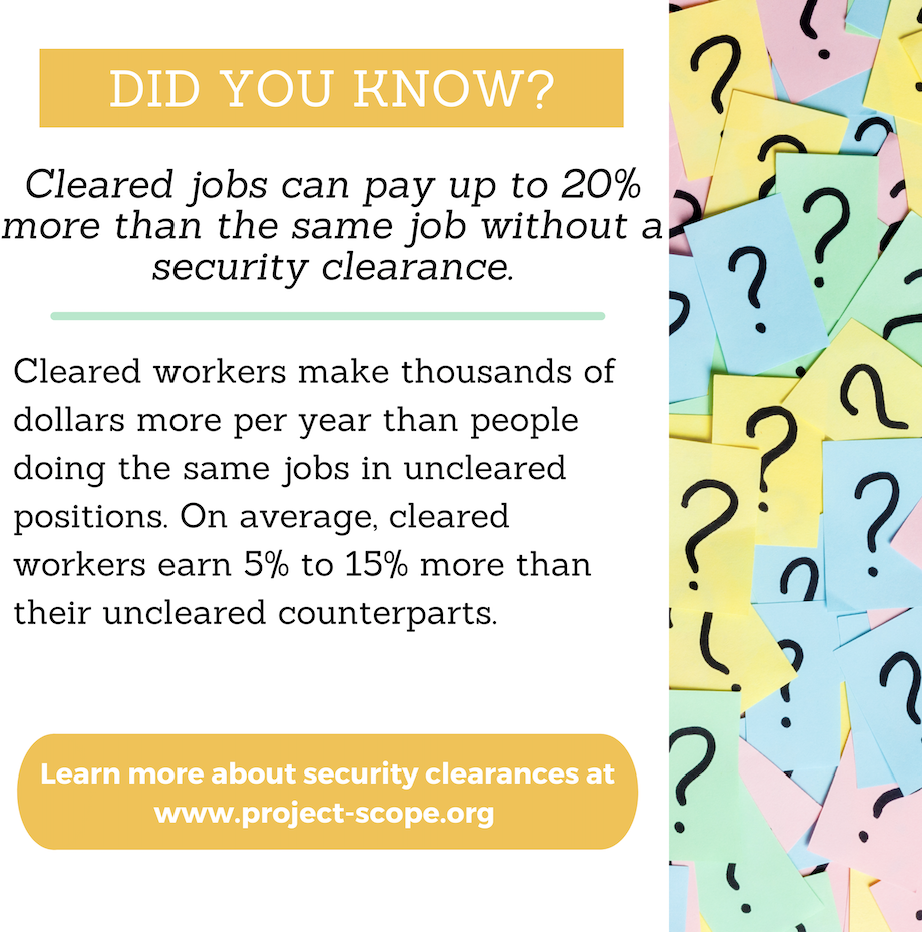
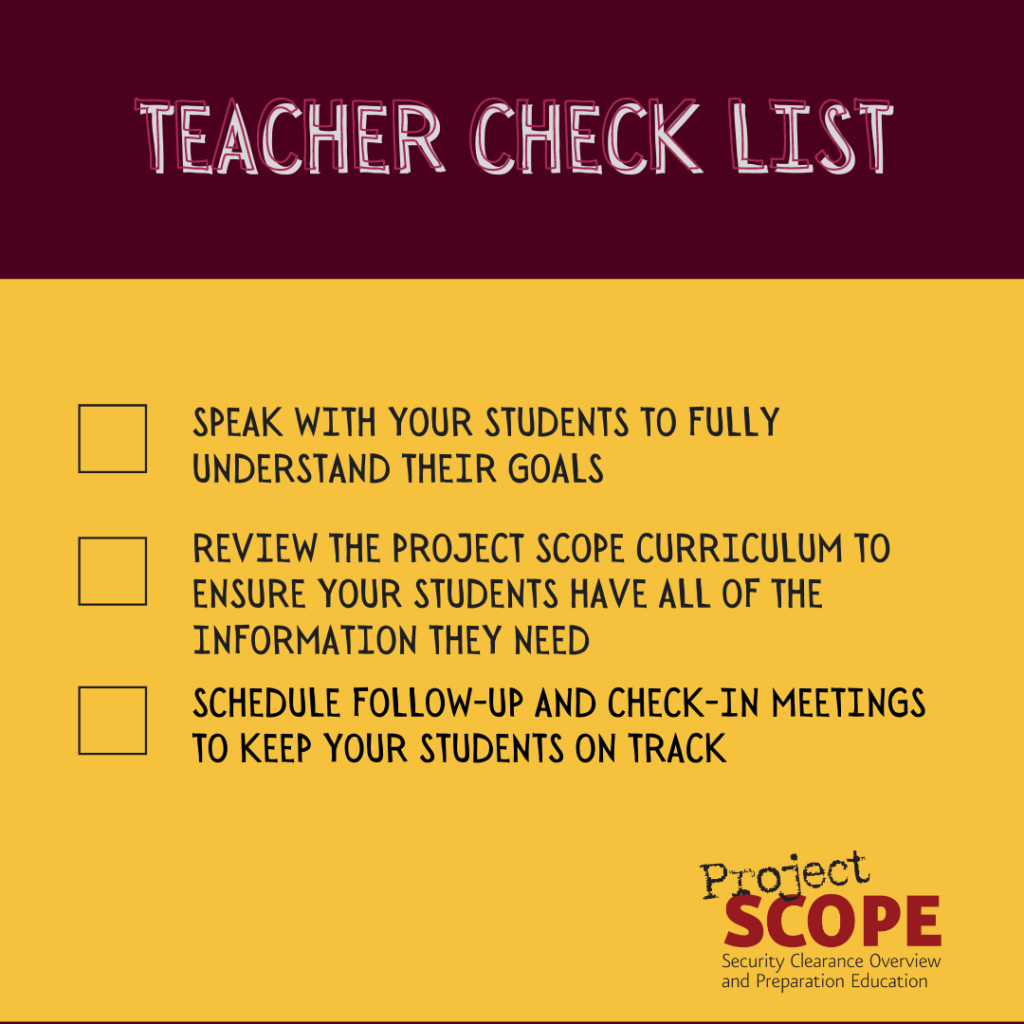
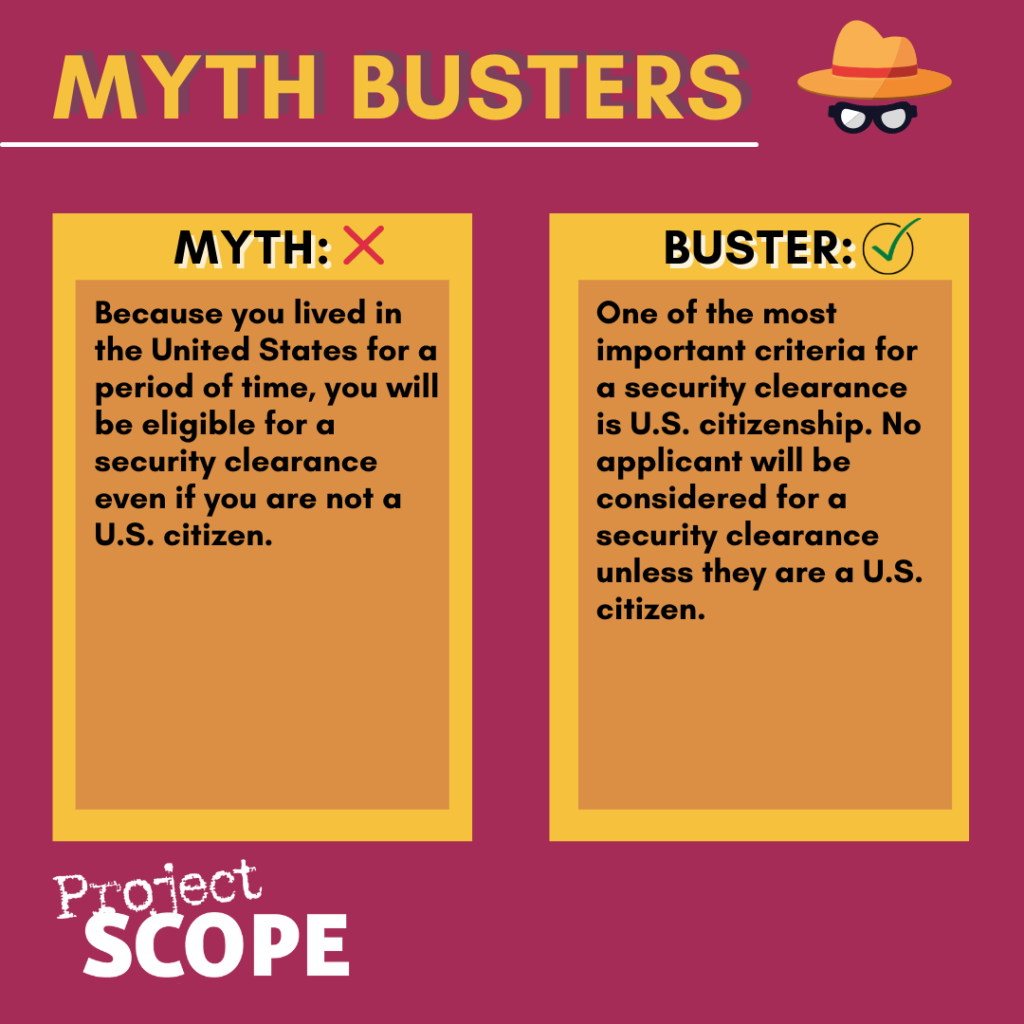
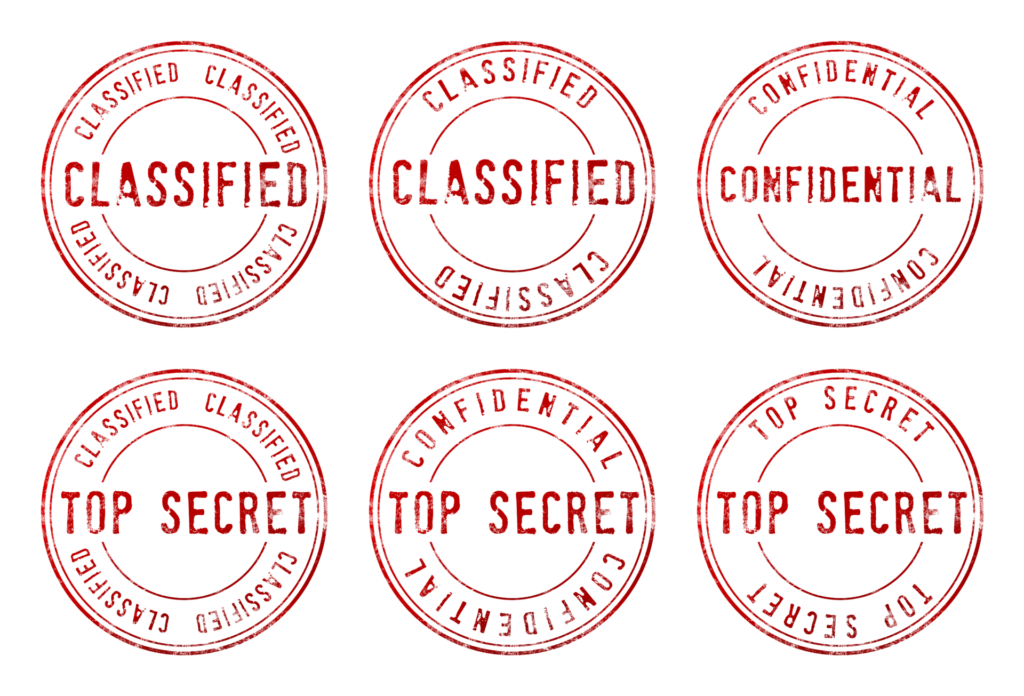
Service, training and career development within the military equips many people with all the skills needed to step into desirable jobs within federal agencies or government contractors. In some cases, new veterans even have prospects of continuing their work for the same agencies they served while in uniform. That transition, however, is not as simple or quick as many people would expect. The reality is that hiring and security clearance processes – even for transitioning military members – are complex and time-consuming. Consequently, a transitioning service member typically can’t expect to to wrap up their military job on Friday afternoon and step into their new civilian government role come Monday morning.
Acquiring a security clearance as a civilian involves some different processes than military clearances and requires applicants to meet different – and sometimes changing – standards.
Consequently, it is very beneficial to learn about those processes long before leaving military service. By understanding the requirements, securing a job offer and starting the security clearance process while still in service, transitioning military members can greatly improve their chances of receiving their new security clearance. They can also improve their ability to start their desired civilian job soon after their military service ends.
Different federal agencies – and the companies that complete contract work for them – operate on slightly different timelines when it comes to hiring individuals and vetting them for new security clearances. But every timeline is lengthy.

Look at intelligencecareers.gov to find the most up-to-date timelines for each agency. As of spring 2020, the average time it takes to land a job offer and security clearance to work at the National Security Agency is 33-42 weeks. Successful applicants for jobs with the Defense Intelligence Agency or Director of National Intelligence typically require 20-plus weeks to complete the hiring and security clearance procedures while applicants to the National Geospatial-Intelligence Agency typically need 18-plus weeks.
There are several things that the applicant can do to help this process move as quickly and smoothly as possible.
Prepare in advance for the SF 86: You don’t have to wait until you receive a job offer to start working through the SF 86. Go to www.opm.gov/forms, download a copy of the SF 86 and begin compiling the needed information. It could enable you to start that new job a few weeks sooner.
Full, honest disclosure: Provide true and complete answers to questions on the SF 86 and to the investigators’ questions. Applicants – including transitioning military who have been through background checks and security clearances before – sometimes try to “self-adjudicate.” They might omit certain details they believe could be problematic in obtaining their security clearance. Failure to fully disclose, however, can prolong the background investigation, raise serious questions about the applicant’s integrity and ultimately result in the denial of a security clearance or job offer.
Be prompt, be available: When a federal official contacts you for a Personal Subject Interview, a polygraph or other appointment, take the first available date. That practice will avoid prolonging the security clearance process and demonstrate your commitment to securing a clearance and starting work. Also keep the agency and investigator informed of your current address and full contact information.
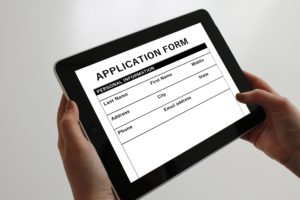 Once you have been selected for a position requiring clearance, you will then complete security forms (SF85P and SF86) or Electronic Questionnaires for Investigations Processing (e-Quip) and other supporting documents. Your signature on these documents will allow the agency to check your history, including employment, credit and financial records, military background, police record, medical records and other areas of your life.
Once you have been selected for a position requiring clearance, you will then complete security forms (SF85P and SF86) or Electronic Questionnaires for Investigations Processing (e-Quip) and other supporting documents. Your signature on these documents will allow the agency to check your history, including employment, credit and financial records, military background, police record, medical records and other areas of your life.
The security office will generally submit your forms or e-QIP to the Office of Personnel Management (OPM) which will conduct the investigation. A prerequisite for accessing classified national security information is the completion and favorable outcome of a background investigation. The scope of the investigation will vary, depending on the nature of the position.
Local agency checks will be conducted to review your criminal history within the jurisdictions where you have lived, worked or attended school. During the investigative process, inappropriate conduct from your past may be uncovered. This is not automatic grounds for denial of a clearance. In fact, the investigators will look deeply into the actual incident and determine its relevance on a case-by-case basis. They will consider the following factors:
The investigation may also include interviews with co-workers, family, friends and other acquaintances; a review of your medical, credit and financial history; a criminal records check; and questioning regarding illegal drug usage, contact with foreign nationals and other topics.
Background investigations that include interviews must include a sufficient number of people who know you well, such as neighbors, co-workers, supervisors and, if applicable, former spouses. Background investigators will want to talk to as many knowledgeable people as possible to get a balanced, accurate, and comprehensive picture of you. Later, you may have an opportunity to refute any misleading or false information that was reported about you. When investigators are conducting interviews with your references – those that you supply and those that are developed by the agency – and your past and current employers, they are trying to determine particular information about you.
Many types of background investigations involve a personal interview, which is used to validate the data you filled out in your SF86 and clarify any other information about you. Investigators will be sure to verify:
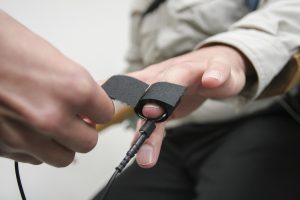 To obtain a security clearance for a civilian position at NSA and some other federal agencies, applicants must take a Full Scope polygraph which covers both counterintelligence and lifestyle issues. Consequently, the test can include questions about espionage, sabotage, terrorist activities, deliberate damage of government information systems or secret contacts with foreign agents, as well as questions about you involvement with drugs, alcohol, crime, financial mismanagement or efforts to falsify your SF 86.
To obtain a security clearance for a civilian position at NSA and some other federal agencies, applicants must take a Full Scope polygraph which covers both counterintelligence and lifestyle issues. Consequently, the test can include questions about espionage, sabotage, terrorist activities, deliberate damage of government information systems or secret contacts with foreign agents, as well as questions about you involvement with drugs, alcohol, crime, financial mismanagement or efforts to falsify your SF 86.
You should prepare for a suitability polygraph by:
Polygraphs can be intimidating so it’s helpful to understand the process and follow a few best practices.
The Process: The polygraph is completed in three phases. During the pre-test phase, the examiner reviews the releases which the applicant needs to sign, and explains the equipment used in the test. The examiner and applicant talk through all the questions that will be asked and the applicant can raise any questions or concerns about the test. Experts urge applicants to treat this as a conversation and an opportunity to get more comfortable with the process.
During the test, the examiner asks the pre-approved questions as well as several irrelevant questions. The examiner asks the set of questions several times in order to obtain better readings. Examiners realize that many candidates feel stress during the polygraph and can adjust their equipment accordingly.
Following the test, the examiner and applicant may discuss any answers that generated an inconclusive result or that suggest deception. They may develop an alternate, preferable way to ask about the same topic.
Applicants get three opportunities to take the polygraph before a final adjudication of their security clearance application is completed.
Best Practices: Polygraph experts recommend applicants avoid over-preparing for polygraphs and simply treat them as honest (if somewhat unusual) conversations.
The adjudicative process is the careful weighing of a number of variables known as the “whole person concept” and includes an examination of a sufficient period of your life to determine if you are an acceptable security risk. Available, reliable information about you – past and present, favorable and unfavorable – is considered in reaching a determination of your eligibility for a security clearance.
Adjudicators, who render clearance decisions, review the completed investigations. They consider all the available information – the good, the bad and the ugly – when making clearance decisions, applying the criteria for access to classified or sensitive information as spelled out in Intelligence Community Directive (ICD) 704.
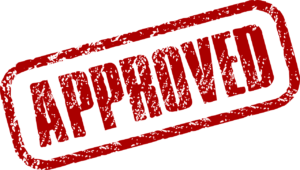
Adjudicators assess the collected information against the ICD 704 Adjudicative Guidelines to decide if you are eligible for a clearance or a position of trust. If no significant adverse information is uncovered, you’ll be granted clearance eligibility at the level requested by your agency. If significant, unfavorable or unresolved material develops, it could mean that your case will be delayed until additional information is gathered and facts are verified. Ultimately, you may be denied a clearance.
Clearances can be denied only on the basis of substantive information that raises concerns about stability, loyalty, character, judgment, reliability or trustworthiness. They are never denied on the basis of gender, race, religion or sexual orientation.
The Department of Defense has gone to great lengths to ensure that the clearance process is fair and balanced. Clearances aren’t denied without people getting a chance to give their side of the story – to explain or rebut any derogatory information that has developed.
Federal agencies will normally accept another agency’s investigation as the basis for granting a security clearance, provided your last security clearance investigation was completed within the past five years for a Top Secret clearance and 10 years for a Secret clearance, and you have not had a break in service of more than two years. Also considered is whether there have been any significant changes in your situation since your last investigation. Some federal agencies might have additional investigative or adjudicative requirements that must be met prior to their accepting a clearance granted by another agency.
Specifically, there are 13 Adjudication Guidelines that adjudicators consider when determining eligibility for access to classified information and eligibility to perform sensitive duties. A brief summary of each guideline is provided below, or you can review the full document on the guidelines here.
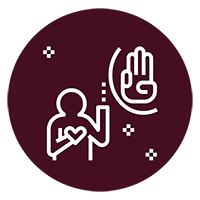
Example of a concern: Membership in an organization that supports overthrowing the U.S. government.
Example of a concern: Failure to report, when required, an association with a foreign national.
Example of a concern: Failure to report to an appropriate security official the possession of a passport issued by any other country.
Example of a concern: Sexual behavior of a criminal nature, whether or not the individual has been prosecuted.
Example of a concern: Deliberately providing false or misleading information concerning relevant facts to an investigator or security official.

Example of a concern: A history of not meeting financial obligations or an inability or unwillingness to satisfy debts.
Example of a concern: Alcohol-related incident, such as driving while under the influence.

Example of a concern: Recent drug use, illegal drug possession or drug dependence.
Example of a concern: The individual has failed to follow treatment advice related to a diagnosed emotional, mental or personality condition, such as failure to take prescribed medication.

Example of a Concern: A single serious crime or multiple lesser offenses.
Example of a concern: Collecting or storing classified information in an unauthorized location.
Example of a concern: Service or employment with the government of a foreign country.

Example of a concern: Illegal or unauthorized entry into any IT system or component thereof.
You’ve read about the process. Are you ready to fill out the SF86?
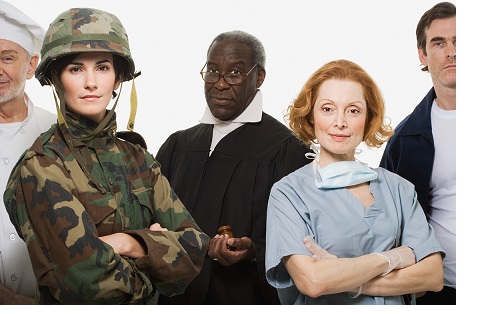
Military service equips individuals with valuable training, experience and skills. And while some service members know exactly what they want to do in civilian life, most have an incomplete understanding of the full range of appealing jobs and careers into which they could transition. So it’s worth spending some time exploring your options.
Naturally, some thoughtful reflection on your military service, other work experiences, training, skills, strengths, interests, favorite (and least favorite) jobs, ambitions and lifestyle preferences will lead you to solid ideas about the types of jobs and careers you would like to pursue after leaving the military. You should also be open to new opportunities that are different from your current job.
Some career-focused conversations can also help you identify the most desirable civilian careers. For example, contacting former commanding officers or military colleagues who have already left the service can lead to especially insightful conversations about civilian job options and the opportunities that might suit you best.
One of the most common mistakes that departing military members make is to accept a limited view of their job and career options. Skills acquired while serving in one role in the military may equip you for a wide variety of jobs in the civilian world.
For example, a member of a military motor pool doesn’t have to limit their job search or career planning to automotive or transportation companies. Their mechanical skills may make them great matches for jobs at manufacturers, heavy equipment companies, construction companies, shipping/distribution companies and other businesses focused on machinery.
Similarly, any individual who has been involved in the boundless logistics of the U.S. armed forces could be well suited to careers in Maryland’s large and flourishing cargo and distribution sector. Think of the activities of the Port of Baltimore, Baltimore-Washington International Thurgood Marshall Airport or the growing number of distribution centers – such as Amazon, UnderArmour and Rite Aid – along the I-95 corridor.
Search widely for career options. There are more suitable and desirable opportunities than you think.
 Assorted services and websites can enhance this process with tools that assess your interests, skills and work values in order to propose potentially suitable and desirable careers.
Assorted services and websites can enhance this process with tools that assess your interests, skills and work values in order to propose potentially suitable and desirable careers.
Being prepared for the interview process is an essential part of landing a job – individuals who interview well and have the hard skills an employer desires tend to advance through the process. Those who aren’t prepared for the interview are often left behind. Check the tips below for how to prepare for each stage of the interview process:

It’s important to know the specifics of a company before going to the job interview. By doing research ahead of time, hiring managers see that preparation has been done and that the candidate was interested enough to learn about the company before the interview. Many job candidates fail to take this important step. The candidate with knowledge of the company stands out. Typically, you will want to determine each of the following pieces of information about a company to which you are applying:
Finding any written materials available, such as an annual report, can also be helpful. The Human Resources Department may have information and would help the applicant learn more about the company. Many companies have reports and other materials online.
Questions You Will Be Asked

Being able to speak and write well are essential skills. During the interview, employers want job candidates to answer questions concisely, in an intelligent way, using good grammar. They don’t want to hear “ah’s” and “um’s” or, “like, you know.” They want to see if you have good presentation skills and would represent the company well. Could clients or customers understand what you have to say? Could they confidently have you give a presentation to upper management?
A typical opening question asked early in the interview may be to ask the candidate to talk about themselves. Answering this question and subsequent questions will give the interviewer an early indication about a candidate’s suitability for the position.
Therefore, being prepared about the right response is essential.
There is no way to predict the exact questions that will be asked, but the sites shown below can help as they include examples of probable questions. Days before the interview, potential candidates can choose several to answer or role play with a friend who can select random questions. Practice gives the candidate an opportunity to make changes to strengthen answers. Confidence will build as well.
Several websites will provide an example of potential interview questions:
Questions You Should Ask
Employers appreciate job candidates who ask appropriate questions as it demonstrates the candidates are serious about the position and have taken the initiative to learn about the company. Prepared questions demonstrate to employers that the potential candidate is serious, pro-active and invested in the job search.
But note these cautions:

Having good questions prepared will demonstrate confidence and interest rather than appearing uninformed. This also supports a desire to be thorough. For an initial interview, it would be advisable to come prepared with between 5-10 questions. However, every interview and interviewer is different and the amount of time spent with job candidates varies. Prioritizing questions helps candidates address their primary concerns first.
Generally, it is important to cover these key areas:
Some questions may be answered during the interview and being prepared to insure all your concerns are addressed will allow both the candidate and the interviewer to feel the discussion was thorough. Asking questions also allows the employer to see the candidate’s personality. When an interview becomes conversational, it provides insight into the candidate’s social skills. Employers are less willing to hire people if they feel they will be unable to be “part of the team.”
Check out these resources for additional help preparing yourself and questions for your interview:
Prepare to Talk About How Your Experience Will Help the Company

The employer wants to know you can help solve a problem or fulfill a need they have. How does your work experience relate to the skills that are needed? The interviewer will be looking for a match. If you list skills on your resume that have no bearing or give examples that are unrelated to a desired set of skills, the interviewer won’t see a match.
Some interviewers will start by talking about the company and what they need. Listen carefully if they do as you can then point out examples on your resume that show you have experience dealing with a particular problem or need.
Other General Tips
An initial or screening interview may be conducted by phone instead of face to face. From the employer’s perspective, it can be a good way to hear:
The phone interview is extremely important as it can determine if a job candidate moves forward for further consideration.

Because of the large number of job candidates, phone interviews may be conducted by recruiters hired by a company or Human Resource professionals within the business. Candidates who have the skills and have made a positive impression might then be referred on to hiring managers for the next interview.
Preparation for the phone interview should require the same planning as done for a face-to-face interview. This means researching the company and devoting time to practice answering interview questions. A phone interview may be as short as 15 minutes. Job seekers can impress the interviewer by following the following suggestions:
There are several tasks which, when done in preparation for the job interview, provide the candidate with greater assurance of success. Here are suggestions to make the preparation go smoothly.
Determine Location Prior to the Interview
Research the location where the interview will be held well ahead of the scheduled time. If time permits prior to the interview, consider a drive to the site at the same time as the interview, if possible, to judge traffic conditions. Find the nearest parking facility. If the office or room for the interview is unclear, perhaps go into the building to find out the exact room or office.

If driving a distance, use a map service to find exact directions and note the time they recommend – then add 30 minutes. It is essential to arrive at least 10 minutes early to the interview.
NEVER be late!
It is always possible that unforeseen problems could occur, such as a terrible accident delaying traffic. Always have the hiring manager or interviewer’s phone number so a call can be made immediately to let them know of the situation. Notifying the interviewer of the delay is something that job seekers must do to be considered a serious candidate.
Appropriate Attire

An important step in preparing for a job interview is determining the appropriate attire for the position. Hiring managers will form an immediate impression based on the appearance of the candidate because the choice of attire indicates the importance the candidate has placed on the potential position. Choose interview clothing prior to the interview, insuring the attire is clean and pressed. Eliminate scuff marks from shoes and select appropriate accessories prior to the interview. Preparing attire well ahead will insure preparation for the interview is as stress-free as possible.
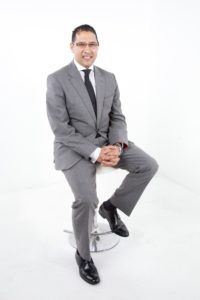
It is best to come in professional business attire for an interview unless specifically instructed to wear something more casual. This typically means a suit or dress that includes classic accessories such as a tie, subtle jewelry and/or a blazer.
This demonstrates the importance of the interviewing process and allows the candidate to highlight themselves, rather than distracting the hiring manager by bringing attention to their attire.
Every company wants to make sure their employees represent them well to customers and clients. Appearance is therefore critically important.
Materials to Bring
Copies of resumes and other relevant material should be prepared in advance. A portfolio or folder to be taken to the interview with these materials, along with any questions to be discussed, should be placed for easy access when ready to leave for the interview.
Relax
 On the day of the interview, remaining calm is important. Having the right mindset for the interview will allow the candidate to appear confident and relaxed. Each candidate understands how they are best prepared, individually, with the right meal, exercise, music, etc. The candidate should approach the interview as poised and prepared as possible to insure the potential employer has a positive first impression.
On the day of the interview, remaining calm is important. Having the right mindset for the interview will allow the candidate to appear confident and relaxed. Each candidate understands how they are best prepared, individually, with the right meal, exercise, music, etc. The candidate should approach the interview as poised and prepared as possible to insure the potential employer has a positive first impression.
On the Day Itself
After arriving to the interview site, a last minute check is always in order. Find a restroom and:
Job seekers should arrive at the office 10 minutes early. It is courteous to greet the receptionist with a genuine smile, letting him/her know of the interview appointment.
In all likelihood, it will be necessary to wait. While seated, there are ways to make a good impression. For instance, sit up straight. Don’t chew gum or use an electronic device during this time.
When the interviewer meets the job seeker, they be watching will be watching for how the candidate:
To make the best first impression, walk up to the interviewer with a genuine smile, make eye contact, and give a firm handshake.

Wait to be invited to sit down. During this time, the interviewer is observing everything the job seeker does and is forming an impression. Make certain to not slouch in the chair but have good posture and lean forward slightly. It will be easier to pay attention and remain engaged in the conversation this way.
When leaving, thank the interviewer with a smile and a handshake. It is appropriate to ask what the next step will be in the interview process and when and how the decision will be made. Thanking the receptionist before leaving is important to do as well.